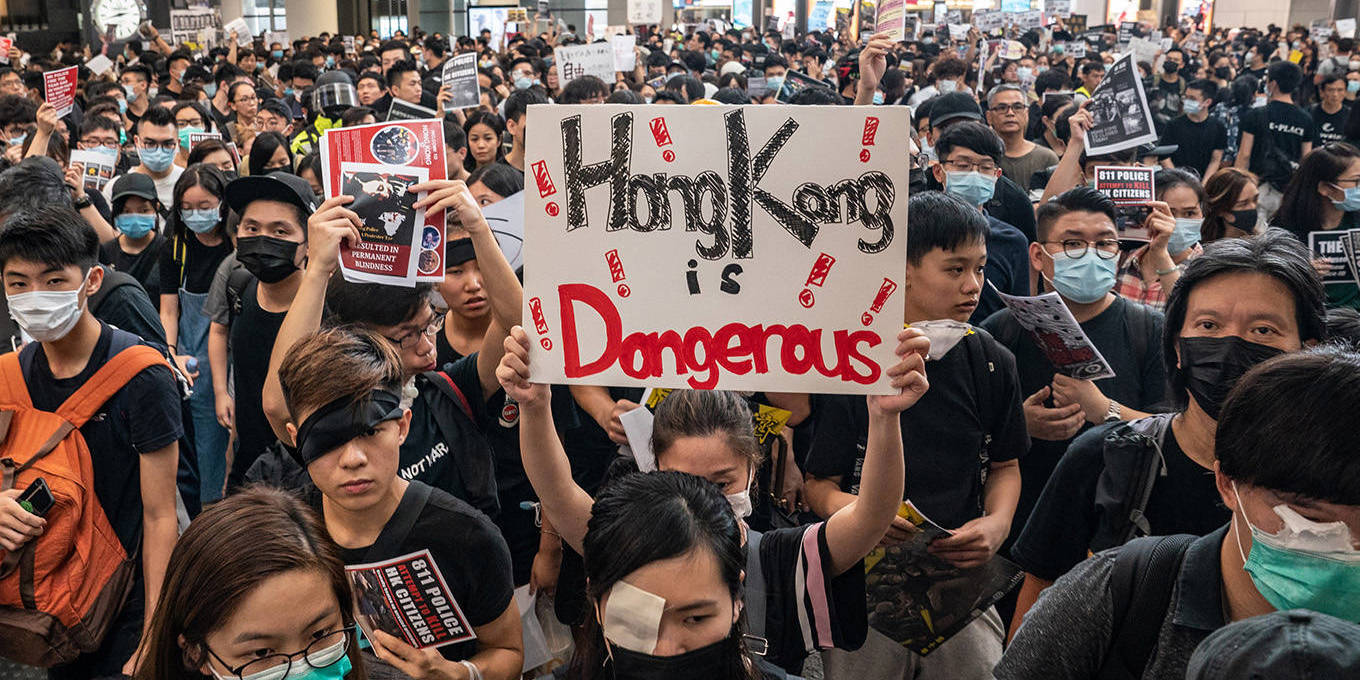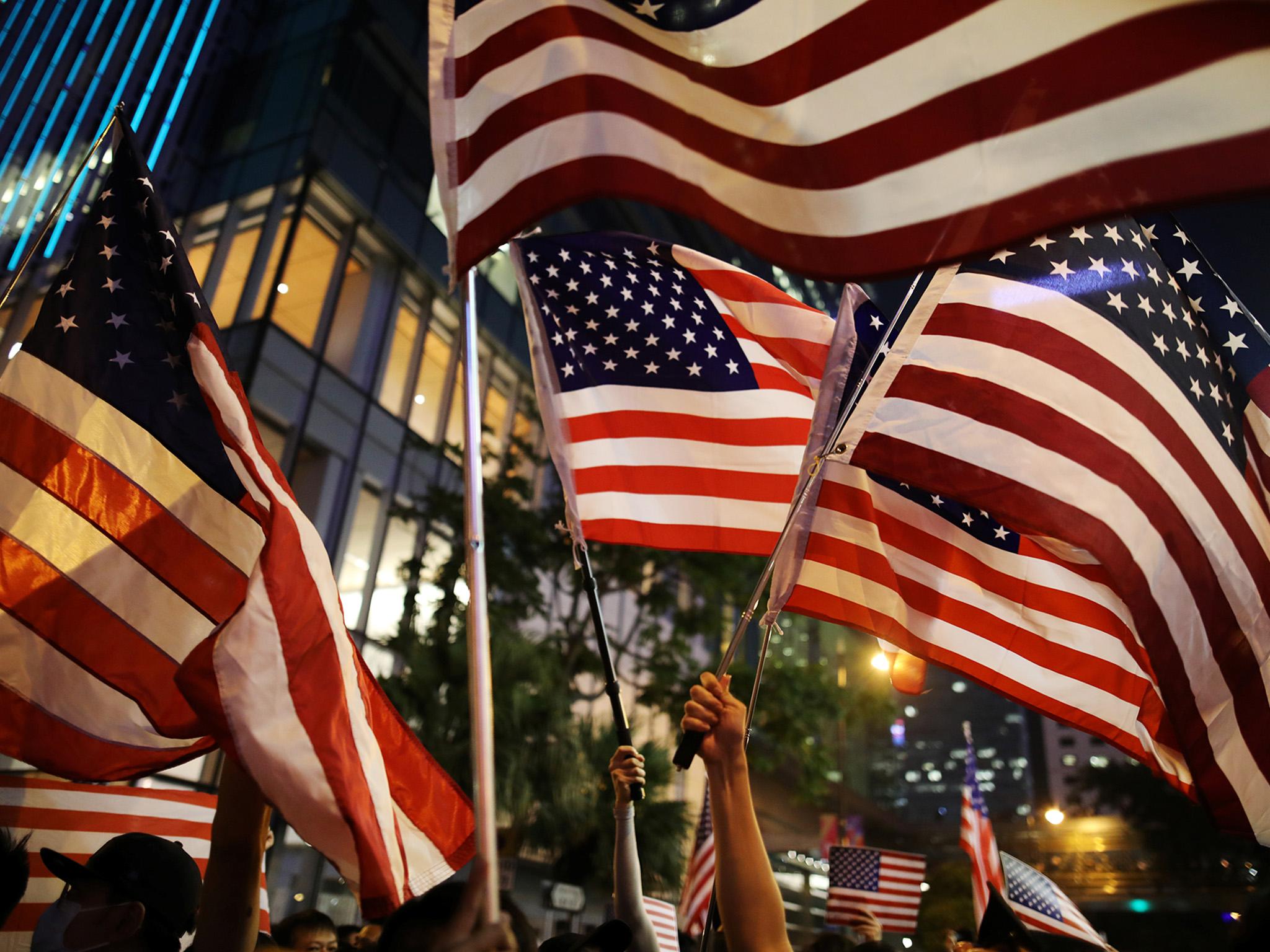A Tiananmen Solution in Hong Kong? No Way
Chinese Communists may loathe the idea of making concessions to the Hong Kong protesters, but considering the catastrophic consequences of a military crackdown, that is what they will do.By MINXIN PEI

WASHINGTON, DC – The crisis in Hong Kong appears to be careening toward a devastating climax.
With China’s government now using rhetoric reminiscent of that which preceded the Tiananmen Square massacre in June 1989, Hong Kong’s pro-democracy protesters – and, indeed, its democracy – could well be in grave danger.
For more than two months, Hong Kong has been beset by protests.
Triggered by a proposed law to allow the extradition of criminal suspects to mainland China, the demonstrations have since developed into broader calls to safeguard – or, perhaps more accurately, restore – the semi-autonomous territory’s democracy, including by strengthening state (especially police) accountability.
As the unrest drags on, the Chinese government’s patience is wearing thin – and its warnings are growing more ominous.
The People’s Liberation Army (PLA) garrison in Hong Kong is, in the
words of its commander Chen Daoxiang, “determined to protect national sovereignty, security, stability, and the prosperity of Hong Kong.”
To drive the point home, a promotional video showing Chinese military officers in action was released along with the statement.
Yang Guang, a spokesperson for the Chinese government’s Hong Kong and Macau Affairs Office, has echoed this sentiment,
warning the protesters – whom he calls “criminals” – not to “take restraint for weakness.”
He then reiterated the government’s “firm resolve” to “safeguard the prosperity and stability of Hong Kong.”
Zhang Xiaoming, the director of the office, then took matters a step further,
declaring that China’s government “has sufficient methods and enough powerful means to quell all sorts of likely unrest (dongluan).”
This came just two months after China’s defense minister
argued that China’s stability since the Tiananmen crackdown proved that the government had made the “correct” choice.
Increasingly harsh warnings against Hong Kong’s protesters point not just to a hardening of positions, but also to the ascendance of figures in the Chinese government who favor asserting total control over the territory.
And they have been reflected in the response from the police, which has been deploying rubber bullets and tear gas with rising frequency.
Hundreds have been arrested, and 44 have been
charged with “rioting.”
Yet,
far from being deterred, the protesters are challenging the Chinese government with increasing resolve.
In July, they
vandalized the outside of the Chinese government’s liaison office in the city center.
Last week, they mounted a general strike that nearly
paralyzed the city, one of Asia’s most important commercial hubs.
Perhaps counter-intuitively, this radicalization has come alongside broadening support for the movement, with members of the middle class – such as lawyers and civil servants – openly joining the cause.
With their stark warnings having no effect, China’s leaders may well be sensing that the best – or even the only – way to restore their authority in Hong Kong is by force, though Xi Jinping may wait until after the celebrations for the 70th anniversary of the founding of the People’s Republic on October 1 to act.
But, whether now or in two months, a Tiananmen-style crackdown is not the answer.
For starters, Hong Kong’s 31,000-strong police force is not up to the task of carrying out such a crackdown.
Not only does it lack the manpower; its officers may refuse to use deadly force.
After all, there is a big difference between firing rubber bullets at a crowd and murdering civilians.
This means that China would have to deploy the local PLA garrison or transfer tens of thousands of paramilitary soldiers (the People’s Armed Police) from the mainland.
Hong Kong’s residents would almost certainly treat Chinese government forces as invaders, and mount the fiercest possible resistance.
The resulting clashes – which would likely produce high numbers of civilian casualties – would mark the official end of the “one country, two systems” arrangement, with China’s government forced to assert direct and full control over Hong Kong’s administration.
With the Hong Kong government’s legitimacy destroyed, the city would instantly become ungovernable.
Civil servants would quit their jobs in droves, and the public would continue to resist.
Hong Kong’s complex transit, communications, and logistics systems would prove easy targets for defiant locals determined to cause major disruptions.
After the Tiananmen crackdown, the Communist Party of China’s ability to reinstitute control rested not only on the presence of tens of thousands of PLA troops, but also on the mobilization of the Party’s members.
In Hong Kong, where the CPC has only a limited organizational presence (officially, it claims to have none at all), this would be impossible.
And because the vast majority of Hong Kong’s residents are employed by private businesses, China cannot control them as easily as mainlanders who depend on the state for their livelihoods.
The economic consequences of such an approach would be dire.
Some CPC leaders may think that Hong Kong, which now accounts for only 3% of Chinese GDP, is economically expendable.
But the city’s world-class legal and logistical services and sophisticated financial markets, which channel foreign capital into China, mean that its value vastly exceeds its output.
If Chinese soldiers storm the city, an immediate exodus of expats and elites with foreign passports and green cards will follow, and Western businesses will relocate en masse to other Asian commercial hubs.
Hong Kong’s economy – a critical bridge between China and the rest of the world – would almost instantly collapse.
When there are no good options, leaders must choose the least bad one.
Chinese Communists may loathe the idea of making concessions to the Hong Kong protesters, but considering the catastrophic consequences of a military crackdown, that is what they will do.



/cdn.vox-cdn.com/uploads/chorus_image/image/62719257/1024819516.jpg.0.jpg)
